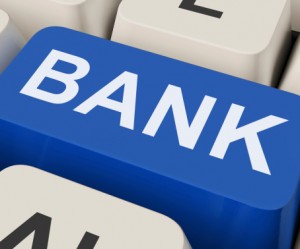 Are you sick of paying sky-high fees on your everyday chequing account? Why don’t you join the millions of Canadians and open an online bank account? Virtual banks have been around in Canada since the late 1990’s when PC Financial and Tangerine (formerly ING Direct) opened their doors. Customers fed up with being nickel and dimed with service charges switched to direct digital banks in droves.
Are you sick of paying sky-high fees on your everyday chequing account? Why don’t you join the millions of Canadians and open an online bank account? Virtual banks have been around in Canada since the late 1990’s when PC Financial and Tangerine (formerly ING Direct) opened their doors. Customers fed up with being nickel and dimed with service charges switched to direct digital banks in droves.
Online or direct banks are different from your local bank branch. Virtual banks are able to offer higher savings rates with little or no service charges because they don’t have the same overhead of traditional brick-and-mortar banks.
Ever since opening their doors in Canada, virtual banking has exploded in popularity. There are dozens of direct banks to choose from including Canadian Direct Financial, Canadian Tire Financial Services and People’s Trust to name a few. Before you sign up for an online bank, there are several important factors to consider.
Savings Rate
Similar to when you’re shopping for a mortgage, a lot of Canadians look for the highest savings rate. With the paltry savings rates offered by most of the big banks, a lot of Canadians have became fed up and started looking elsewhere. Simply put, direct banks blow traditional banks out of the water when it comes to savings rates. Tangerine has recently even started offering a decent interest rate on its chequing account. While saving rates are important, there are other factors to consider.
No Fee/Low Fees
As mentioned, a lot of people were driven to direct banking by the outrageous service charges charged by the big banks. Traditional banks have service charges for everything from withdrawing your money from a teller to ordering more cheques.
Direct banks changed all that – most direct banks don’t charge any fees for routine banking. Tangerine became successful by marketing itself as the no-fee bank. Fees can really add up – if you’re spending $10 a month just for the luxury of a chequing account, that’s $120 out of your pocket every year. The bank is investing your hard-earned money and earning a tidy sum, while you’re paying service charges – how is that fair? I know it can be a pain to switch banks, but it will be worth it when the savings start adding up.
Technology
What use is an online bank if you can’t access your money easily? Technology in terms of banking started as websites before recently expanding into mobile. Direct banking became popular when the Internet was just starting to pick up steam in the late 1990’s. The Internet, which was once a luxury, has now become a necessity in most households. In 2012, 83 per cent of Canadian households had access to the Internet at home, according to Statistics Canada.
Having a user-friendly and secure websites are crucial for online banking. A lot of people keep their emergency savings stashed away in online banks – what use is a virtual bank if you can’t access your money quickly when you’ve got a financial emergency like a leaky roof?
Customer Service
Excellent customer service is at the top of my list when choosing a direct bank. You usually only find out how good your bank’s customer service is when you run into a problem. Since most direct banks lack brick-and-mortar locations, top-notch telephone customer service is a must. I’ve actually closed accounts with online banks because of poor customer service. I’m willing to take a slightly lower interest rate for better customer service. Some online banks also offer to ability to chat online, which is a lot better than spending your precious time on hold on the phone.
Is My Money Safe?
Although the Canadian banks have often been praised for being among the world’s strongest, stability is still at the top of my list. When choosing a bank I make sure it’s covered by CDIC (Canada Deposit Insurance Corporation). If a financial institution were to file for bankruptcy, CDIC insurances protects up to $100,000 of your money.
While most direct banks are covered by CDIC, some online banks aren’t. Credit unions aren’t covered by CDIC (although they’re usually covered by provincially-regulated deposit insurance corporations). I don’t know about you, but I feel a lot safer with my money covered by the CDIC, a large deposit insurance corporation, than smaller provincial deposit insurance corporations. Who knows if a provincial insurance corporation has enough money to bail out a large credit union?
Do you do online banking? What do you look for in a direct bank?
Sean Cooper is the bestselling author of the book, Burn Your Mortgage: The Simple, Powerful Path to Financial Freedom for Canadians, available now on Amazon and at Chapters, Indigo and major bookstores, and as an Audiobook on Amazon, Audible and iTunes.
A very informative article. I could learn more about online banking through this post. Good Work Sean. Keep it up.